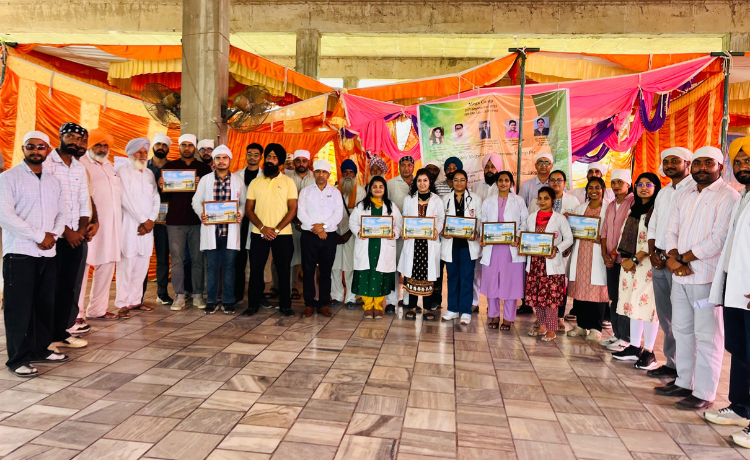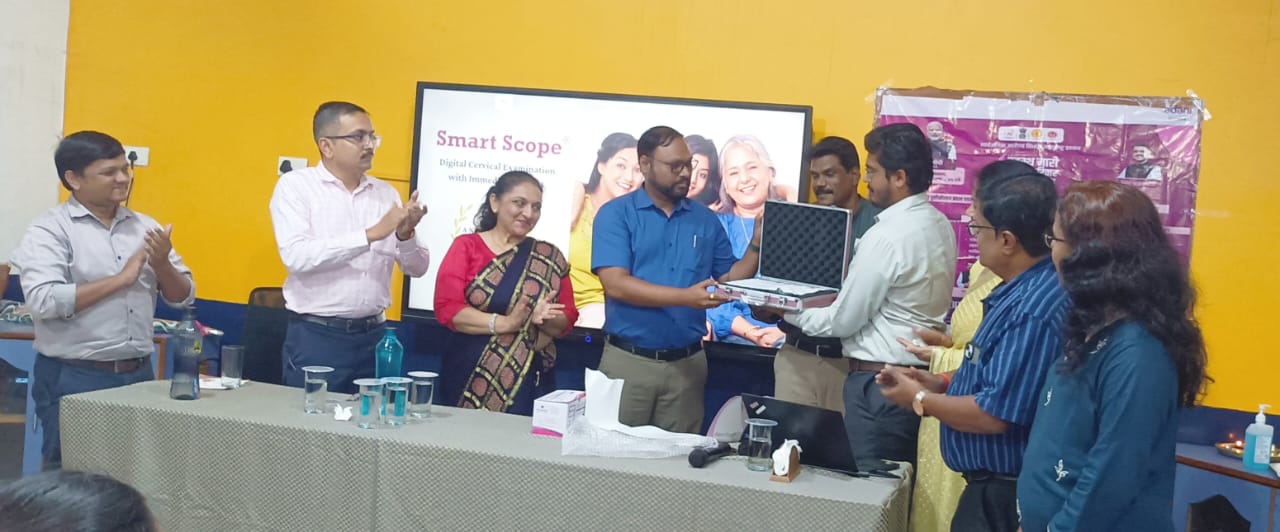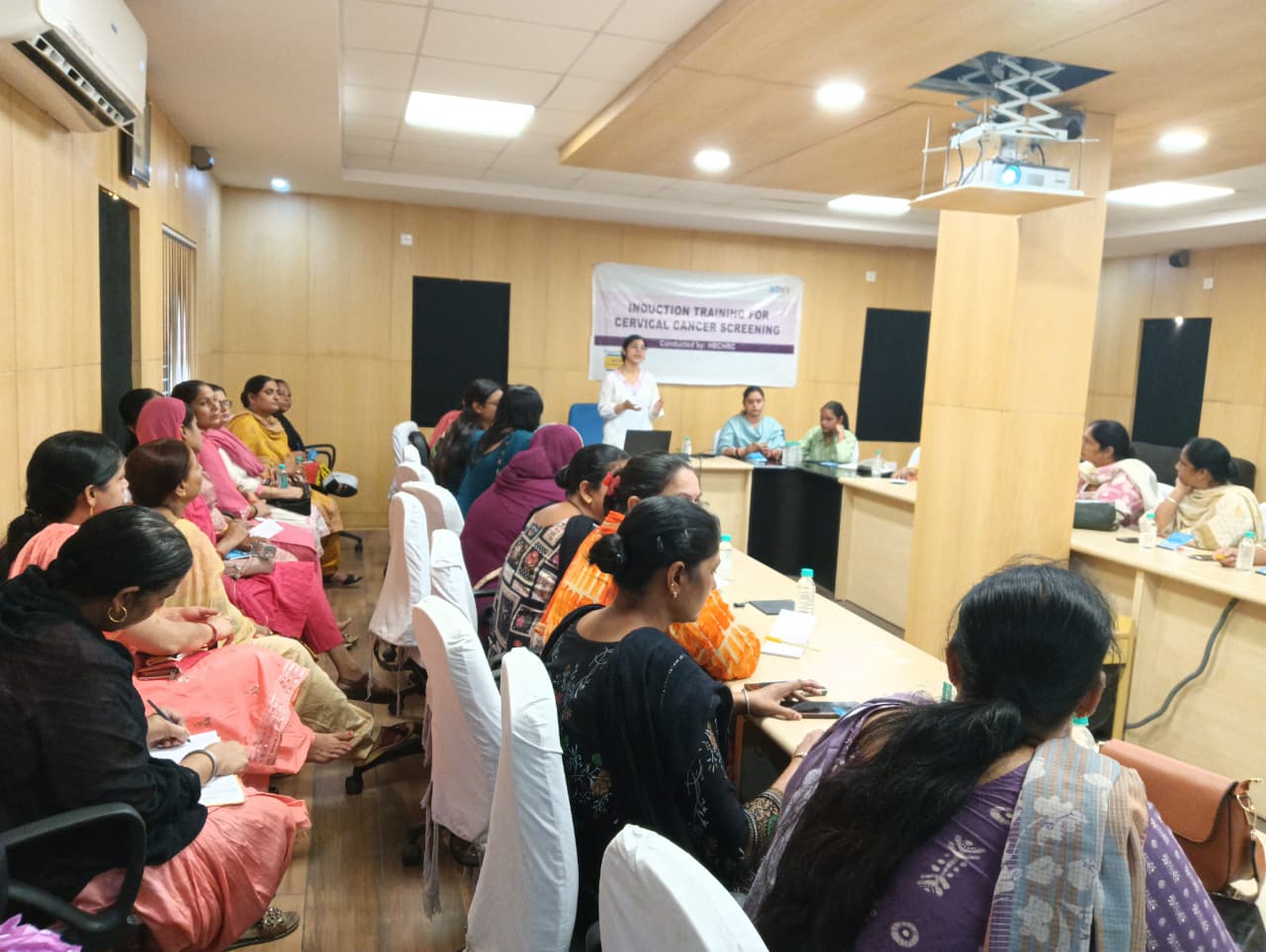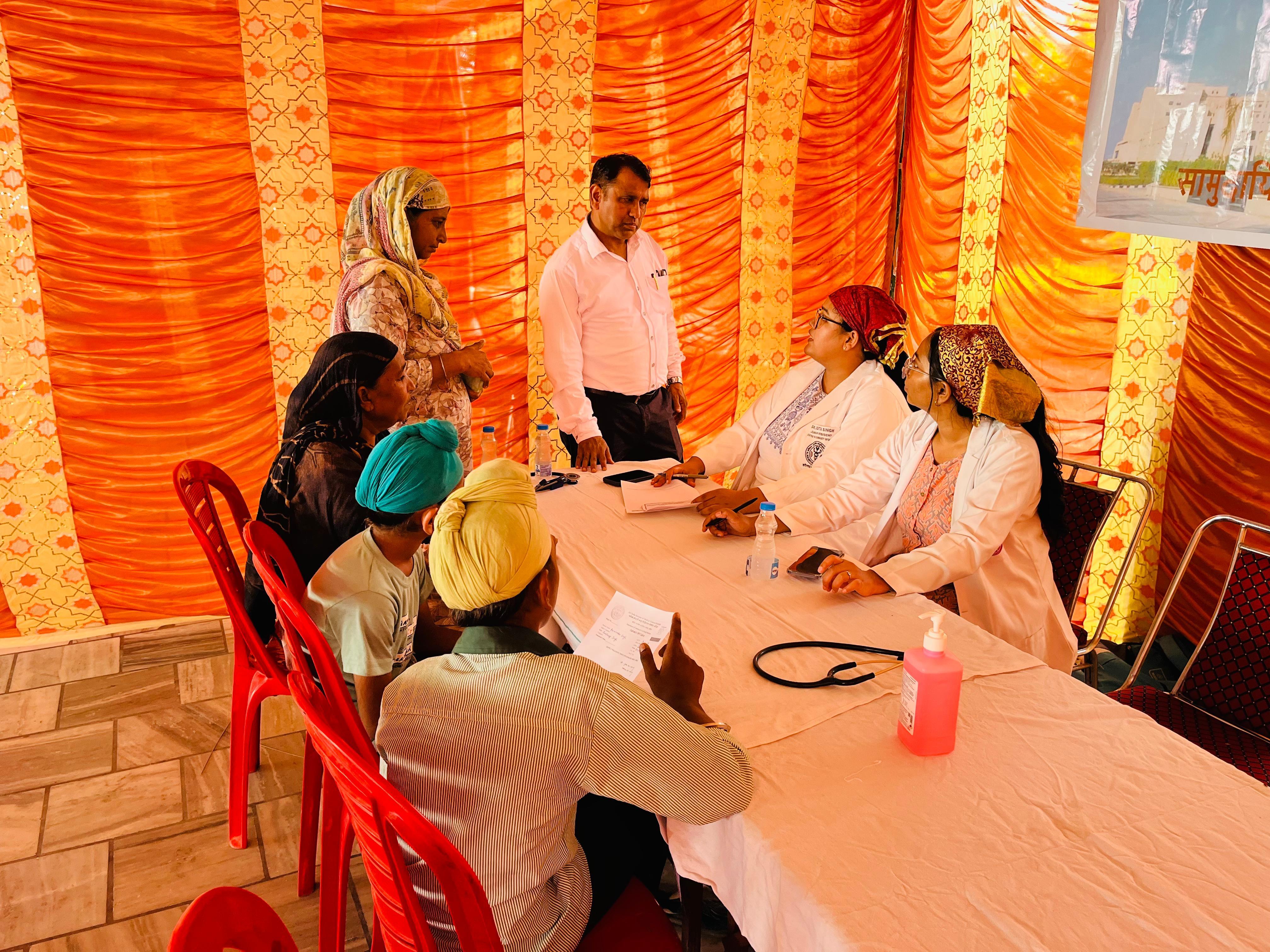At Ambuja Foundation, we believe in continuously building the capacity of our on-ground volunteers—be it our Field Facilitators, Sakhis, Community Water Volunteers, Pashu Sakhis, or Pustak Paris. The long-term impact and sustainability of any intervention ultimately depend on the capability of these foot soldiers, who ensure the last-mile delivery of new information, technologies, and practices.
Recently, a series of healthcare training programs and camps were organized across locations.
In Chandrapur, Maharashtra, an AI-based Smart Scope cervical cancer screening program was conducted for frontline health workers to help detect high-risk patients in rural and remote areas. This initiative, in collaboration with ACT Grants and with technical support from Periwinkle Technology, included guidance from Government Medical Officers and ANMs on using the system. Dignitaries emphasized that, due to the unavailability of such facilities in remote areas, access to this technology is crucial for early detection and cancer care. About 60 frontline workers were trained, and later in the week, an NCD camp was also held to provide regular check-ups.
In Ropar, Punjab, a special training program on breast cancer was organized for Anganwadi workers, volunteers, and female staff. The program aimed to build participants’ ability to identify early signs of breast cancer, understand the consequences of late detection, and adopt precautionary measures. Around 40 participants attended.
In Derabassi, Punjab, a cervical cancer training session was organized for community health workers in collaboration with Pernod Ricard India Foundation. Facilitated by doctors and experts from Homi Bhabha Cancer Hospital and Research Centre (HBCHRC), the training aimed to enhance the knowledge and skills of community health workers—including Sakhis, ASHAs, AWWs, and CHOs—so they can deliver awareness sessions in their communities and support early detection. Over 40 participants, along with project teams, attended. They will now conduct community-level awareness sessions in 20 villages and mobilize women for regular screenings and health check-ups at nearby facilities.
In Moga, Punjab, under HDFC Bank Parivartan’s HRDP project, a multi-specialty health camp was held in collaboration with AIIMS Bathinda. The camp offered breast and cervical cancer screenings, along with regular sugar and BP check-ups and gynaecology consultations. Specialists from general medicine and surgery, along with ANMs and paramedical staff from AIIMS Bathinda, were present. Around 200 people availed the services.
Grassroots para-professionals like these remain an integral part of Ambuja Foundation’s work and its ability to create real impact on the ground. Their established relationships within communities, deep contextual understanding, and alignment with local culture enable them to reach the last mile effectively—ensuring that even in the most remote rural areas, interventions can be rolled out effectively.





